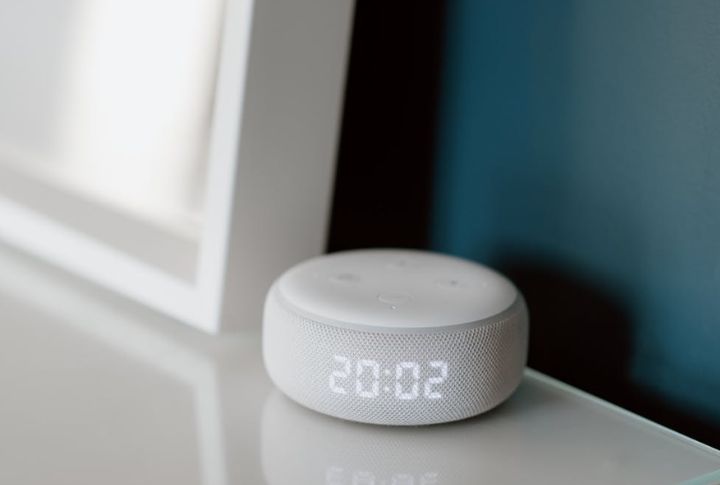
It’s easy to assume modern life makes us smarter, but the truth can be the opposite. Certain everyday patterns slowly chip away at our depth of thinking and ability to focus. The most surprising part is how ordinary these behaviors seem. Keep reading to discover which modern habits are quietly making people more shallow, not sharper.
Media Multitasking

Constantly switching between tasks, such as checking your phone during work, causes your attention to become less focused. People who do this mostly find it harder to concentrate, and even simple tasks can take twice as long when your brain is constantly interrupted.
Chronic Sleep Restriction

Most people have come to think of rest as a luxury, yet getting under seven hours each night actually harms your mind. Instead of just feeling tired, your brain starts to lose its sharpness, and your ability to remember and focus slowly begins to fade.
Ultra-Processed Diets

The food you consume directly impacts your mind. Eating high amounts of processed items can accelerate mental decline. A diet overloaded with sugar and saturated fats is known to damage your memory and learning capacity, making it harder to stay mentally sharp over time.
Dehydration

Losing just two percent of your body’s fluid can hurt your attention and executive function. The mind needs water to function at its best. Even mild dehydration can lead to frequent headaches, slower thinking, and difficulty concentrating, especially during mentally demanding tasks.
Digital Device Dependence

Excessive time on screens reduces deep focus and originality. This reliance on a gadget often prevents spontaneous thinking and genuine reflection. Many people now instinctively reach for their phone or tablet the moment boredom strikes, further weakening the ability to sit with their thoughts.
Hyperconnectivity & Constant Alerts

Push notifications are designed to pull your attention away, which can worsen your ability to recall information. These small interruptions break your concentration and can derail your thinking. It usually takes over 20 minutes to fully regain focus after just one alert.
Shallow Reading Habits

When you skim online articles instead of reading them deeply, your comprehension and empathy weaken. Digital reading often lessens recall compared to reading a physical book. Most readers don’t finish online articles, which limits how much they truly absorb or reflect on.
Social Media Echo Chambers

Echo chambers form when algorithms prioritize content that matches your views. Instead of expanding understanding, the feed becomes a loop of the same narratives. Over time, this cycle narrows thinking, spreads unchecked misinformation, and makes people less open to diverse perspectives.
Doomscrolling & Negative News Binges

Constantly exposing yourself to upsetting headlines increases a stress hormone in your body called cortisol. The steady stream of negativity rewires your brain to expect fast emotional spikes, making it harder to concentrate on slow, focused tasks like reading, studying, or problem-solving.
Decline In Hobbies Needing Focus

Fewer adults are taking up hobbies that require deep focus, such as crafts, puzzles, or musical instruments. These non-digital activities are linked to sharper mental abilities and better long-term brain health. Without them, attention spans shrink and mental endurance begins to fade.
Sedentary Living

Being inactive is just as harmful as heavy smoking for brain health. Staying still for long periods weakens the part of your brain that handles memory. Even simple activities like regular walking can boost your memory and keep your mind sharp.
Declining Social Interaction

You cannot get the full benefit of a digital-only social life. Remote work and online-only contact reduce the rich, brain-boosting socialization that keeps your mind healthy. In-person interaction strengthens memory and emotional intelligence, while also helping reduce feelings of isolation and disconnection.
Anxiety & Chronic Stress

Long-term unrelenting strain can actually kill brain cells and shrink your prefrontal cortex. This can impair your ability to make good judgments and learn things. Many individuals report “brain fog” during extended periods of worry, which leads to slower thinking and poor decision-making.
Reliance On GPS & Apps For Navigation

The hippocampus, the part of the brain tied to navigation, grows stronger when you create mental maps. People who constantly follow digital instructions lose that natural ability. Gradually, GPS reliance dulls memory for routes and weakens the brain’s navigation system.
Reduced Outdoors Time

The brain recharges in nature. Just a few minutes outdoors can improve short-term memory and restore mental clarity. Prolonged time indoors, however, is associated with weaker attention and reduced creativity, particularly in children. That makes outdoor exposure a simple but essential reset for the mind.
Instant Gratification Culture

Constant access to fast entertainment and food weakens your impulse control. Its immediate reward system rewires your brain’s dopamine pathways and makes it harder to stay patient or committed. Over time, it becomes difficult to focus on long-term goals without instant stimulation.
Declining Formal Education Value

Data from assessments like PISA show a significant decline in the performance of students in math and reading. Some students report that critical thought is not emphasized enough in schools. Grade inflation may hide deeper gaps in understanding, making true learning harder to measure.
Voice AI & Smart Assistants Reliance

When you outsource questions and directions to devices, it reduces your own mental effort and retention. This habit weakens problem-solving skills and makes it harder to think independently. People frequently skip reflection and rely on quick answers instead of working through challenges.
Less Handwriting, More Typing

Typing is a standard habit, yet writing by hand activates a wider network of brain regions, made up of motor, sensory, and cognitive areas. Relying only on typing can lead to weaker reading comprehension and less mental engagement. By writing things out, the brain processes details more deeply, which improves memory retention.
Constant Background Noise

A nonstop stream of sound—whether music, podcasts, or TV running in the background—can dull focus in the long run. The brain struggles to filter distractions, leaving less room for deep thought. Even when it feels harmless, constant noise reduces moments of silence that foster creativity and mental clarity.

